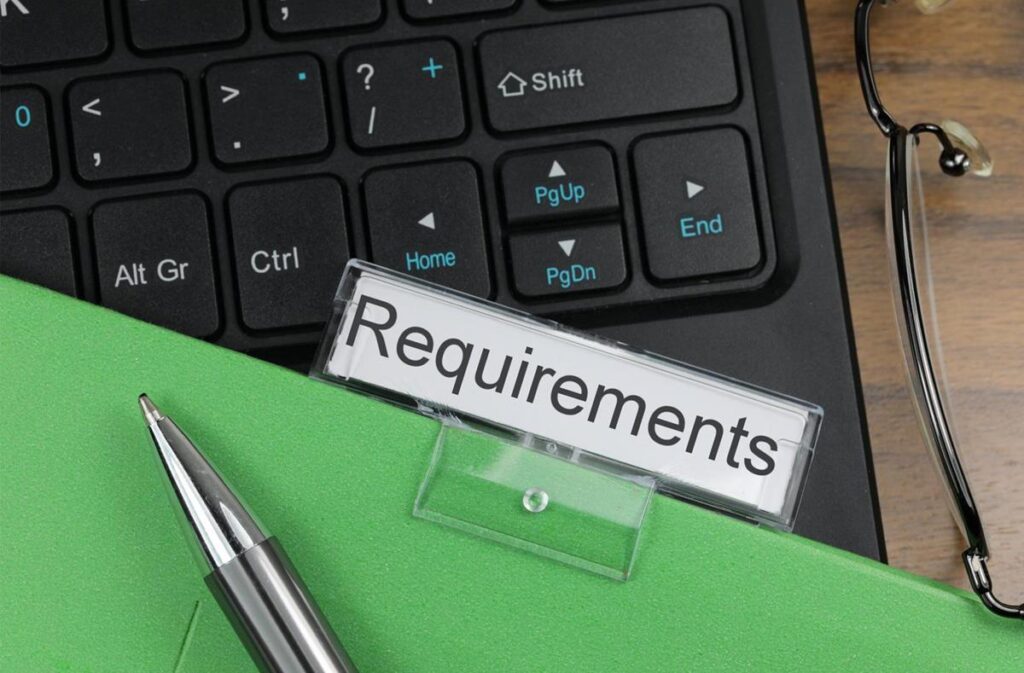Introduction
If you’re considering buying an apartment in Georgia and you don’t have the largest down payment or an excellent credit score, then the FHA loan may be your most suitable option. FHA loans, which the Federal Housing Administration guarantees, are specifically designed to assist those who might otherwise not be eligible to get a conventional mortgage. In Georgia, FHA loans provide an exceptional opportunity to people who are first-time homebuyers, have poor credit, and struggle to pay an enormous down payment. In this comprehensive guide, we’ll go over the most important FHA loan requirements GA in 2025 in order to determine whether the loan you’re looking for is appropriate for you.

1. What Is an FHA Loan?
Before we go deep into the particulars of FHA loans in GA, we must first speak about the definition of an FHA loan. FHA loans are mortgages backed through the Federal Housing Administration (FHA), an agency of the government that is run by the U.S. Department of Housing and Urban Development (HUD). This protection protects lenders in the event that the lender defaults on their loan. This allows lenders to provide better terms for the lender.
Since the FHA guarantees these loans, they are more willing to accept customers who don’t meet the stringent criteria to qualify for conventional loans. This has made FHA loans a preferred alternative for those who have a restricted budget or a less-than-ideal financial background.
2. FHA Loan Requirements in GA: Basic Eligibility Criteria
If you want to qualify to be eligible for an FHA loan in Georgia, it is necessary to meet certain conditions. They include a minimum score on credit or debt-to-income ratios as well as minimum down payments. Specific requirements can differ depending on the lending institution; however, here are the general guidelines applicable to FHA mortgages in Georgia from 2025 onwards:
- Credit Score A minimum credit score needed is usually 580, assuming you’re making a down payment of at least 3.5 percent. If your credit score falls lower than 580, you could nevertheless qualify. However, you’ll require a down payment that is at least 10 percent.
- Minimum Down Payment: The down payment required for the FHA mortgage is 3.5 percent for borrowers who have a FICO of at least 580.
- The ratio of debt to income (DTI) Debt-to-Income Ratio (DTI): The FHA will allow the maximal DTI of 43 percent. It means your monthly payment (including the mortgage) shouldn’t be over 43% of your total income per month.
- Employment History: It is necessary to maintain a stable job history that lasts a minimum of two years to prove that you have enough money to pay back the loan.
The broad strokes are here; however, let’s look at the way they can be applied to your particular situation.
3. Down Payment and Closing Costs in Georgia
One of the major benefits of the FHA loan is the lower down payment requirement. In the past, we’ve mentioned that it is possible to get one FHA mortgage in Georgia by putting just 3.5 percent of the credit score you are obtaining at least 580. It’s a lot less than the standard 20% needed for traditional loans.
There’s more than just a down amount. There’s also the need to pay closing costs. These in Georgia could range between 2% and 5% of the price. Although some of the costs can be resolved, like the person who covers appraisals, title insurance, and others, it will be a significant amount.
When I purchased my first house, I remember how the thought of having the 3.5 down payment was a lot more doable. In conventional loans and down payments, the down payment was usually the most difficult issue. The fact that I did not have to figure out 20% off the start made a massive improvement in my ability in the application.
4. Credit Score Requirements for FHA Loans in Georgia
Your credit score is a key part of the decision to grant you an FHA loan decision. As we mentioned, the required credit score required for obtaining an FHA mortgage for a loan in Georgia is 580 to be eligible for the requirement of a 3.5 percent down amount. If your credit score is between 500-579, you’ll be able to get an FHA loan. However, the requirement for down payments increases to 10 percent.
However, the fact that you have a greater credit score (600-700) will help you get a lower interest rate. It is important to realize that the greater you score on your credit, the lower the chance the lender is taking on. This could result in long-term savings.
I made an effort to improve my credit score prior to applying, even though I wasn’t able to receive the lowest interest. However, I was in a position to make a viable monthly cost.

5. FHA Loan Limits in Georgia
The amount that you are able to get using the FHA mortgage in Georgia is limited by the county’s specific loan limit. Limits are based upon the price of housing in the vicinity, and the highest amount of loans is usually located in more expensive cities.
In Georgia, the FHA limit for loans in 2025 is $320,000- $400,000, based on what county you live in. The loan limits for your region will decide what you can take out. Check the exact limitations for your area through the HUD website or speak with a loan provider for more information on what’s applicable to your particular situation.
6. How to Apply for an FHA Loan in Georgia
The process of applying for an FHA mortgage in Georgia is quite simple; however, it requires some preparation. This is a step-by-step procedure for the process of applying for an FHA loan:
- Prior to applying to borrow money, it’s best to have your application pre-qualified by a loan provider. It gives you an idea of the amount you could take out and how much the monthly payment could be.
- Collect Documents: You’ll be required to supply documents, such as evidence of your income as well as credit reports, tax returns or any other financial documentation required by your lender.
- Find a Loaner: Search for lenders that offer FHA credit in Georgia. Compare rates, charges, and service prior to making an informed final decision.
- Make an application for the loan When you’ve selected the lender, fill in an application in writing. The lender will confirm the application’s details and then begin the process of processing the loan.
- Closing and Approval: Once accepted, you’ll proceed to closing. You’ll be required to confirm your mortgage papers and get possession of your home.
I discovered that the prequalification process was an excellent method to gain an idea of the amount I was able to pay for. It allowed me to narrow my options and helped me narrow them down to properties that fit within my budget. This wasn’t a guarantee of acceptance, but it did give me the confidence to know that I was on the correct course.
7. Other FHA Loan Requirements in Georgia
In addition to the standard criteria of credit, downpayment and DTI conditions, There are additional factors that could affect the possibility of getting the FHA loan.
- Property requirements: The house that you purchase must comply with FHA requirements for property. It is important to ensure that the home is structurally solid, safe and free of significant flaws.
- Mortgage Insurance Mortgage Insurance FHA loans need mortgage insurance. It is required both upfront (1.75 percent of the amount of the loan) and ongoing (monthly fee). This is because the FHA assures the loan and protects the lenders from defaults.
- Main Residence FHA loans are designed to be used for primary residences only. If you’re looking to buy a second house or investment property, then an FHA loan isn’t available.
After I purchased my home, I was sure to inspect its condition. FHA mortgages are very strict regarding the state of your home, and I did not want to come across any unexpected issues in the future. In addition, if you have mortgage insurance, you need to consider that when making the monthly payment calculation.
8. FHA Loan Advantages and Disadvantages
Just like any other mortgage option, FHA loans come with each of their positives and negatives. Here’s a quick rundown:
Advantages:
- Pay with a low down payment. Purchase for as little as 3.5 percent down.
- Flexible Credit Requirements FHA can be more lenient with low credit scores when compared with conventional loans.
- Assumable Loans: FHA loans are assumable, which means that if you decide to sell your home, the buyer will take the mortgage.
Disadvantages:
- Mortgage Insurance FHA loans and regular mortgage insurance are required to be paid in advance.
- Limits on Loan: You’re restricted to the limits of your county’s specific loan that could not suffice in high-cost regions.
- Home Standards: Your property should comply with FHA requirements, and this could cause problems in the event that the property requires major repair.
The greatest benefit of the FHA credit was that it offered a lower down payment. However, the cost of mortgage insurance definitely has added up. There was a lot to think about in the future; however, I believed that the advantages of owning my own house outweighed the costs.

Conclusion
Suppose you’re planning to purchase the home you’ve always wanted in Georgia and are struggling to save for a substantial down payment or have an unsatisfactory credit score and low credit score. In that case, the FHA loan may be the option. When you know the essential criteria for eligibility as well as how this process operates, you can make your next step towards homeownership in confidence.
Although there are certain requirements to satisfy, FHA loans offer flexibility and lower costs for a lot of buyers. If you think this program matches your budget, It may be the best alternative as you continue to purchase a home in Georgia.
If you have any concerns or want more information, Don’t be afraid to talk to an FHA-approved local lender in Georgia. They’ll be able to help you understand the loan process as well as
FAQS
1. What exactly is the definition of an FHA loan?
A FHA loan is a one that’s insured by the Federal Housing Administration, which permits borrowers with a low credit score or less of a down payment qualify for loans for houses. The federal government guarantees loans to assist people who have less financial resources or poor credit scores buy houses.
2. What is the minimum credit score required to apply for an FHA credit in Georgia?
In order to be eligible for an FHA loan in Georgia, it is generally necessary to have a credit score of five hundred and eighty to get the required 3.5 percent down amount. If you have a score between 579 and 500, you may be qualified, but you will have to have a greater down payment, which must be a minimum of 10 percent.
3. What amount of down payment is required to get the FHA mortgage in Georgia?
The minimum amount of down payments for the FHA credit for a home in Georgia is 3.5 % of the purchase price if the credit score is at least 580. In any event that your credit rating falls between 579 and 500, you must make a minimum deposit of 10%.
4. Are FHA loans offered to second-home or investment property in Georgia?
The answer is no; FHA loans are strictly designed for the primary residence. If you’re planning to purchase a second house or investment property, then an FHA loan is not the best alternative.
5. What is the highest FHA loan amount in Georgia?
FHA limits on loans for Georgia differ depending on the county. The loan limit ranges from $320,000 to $400,000 depending on the location. The counties with higher costs typically have greater limits on loans.
6. What is mortgage insurance? Why is it necessary to take out FHA loans?
Mortgage insurance is always mandatory for every FHA loan. This safeguards the lender should the borrower fall into default with the loan.
7. How can I apply to get the FHA mortgage in Georgia?
When the lender has evaluated your loan application, they will approve or deny the loan application. The maximum permissible DTI ratio of the FHA credit within Georgia is 43 percent. That means that your monthly payment for debt (including those for mortgages) must not be more than 43% of the net monthly earnings.
8. Will the seller cover the closing costs of the FHA credit in Georgia?
In many instances, sellers can be responsible for the majority or all the closing expenses in the case of an FHA loan.
9. What are the benefits and drawbacks of an FHA loan?
Advantages:
- Reduce down payment requirements (as low as 3.5 percent).
- More lenient credit score requirements.
- A lower interest rate as compared to traditional loans.
Disadvantages:
- The mortgage insurance policy is mandatory for the credit term.
- The loan limits could be less than the amount you require in high-cost regions.
- The property must comply with certain requirements established in the FHA.

